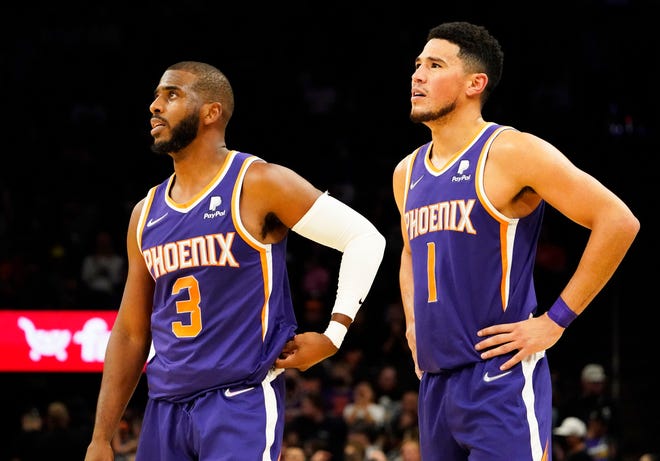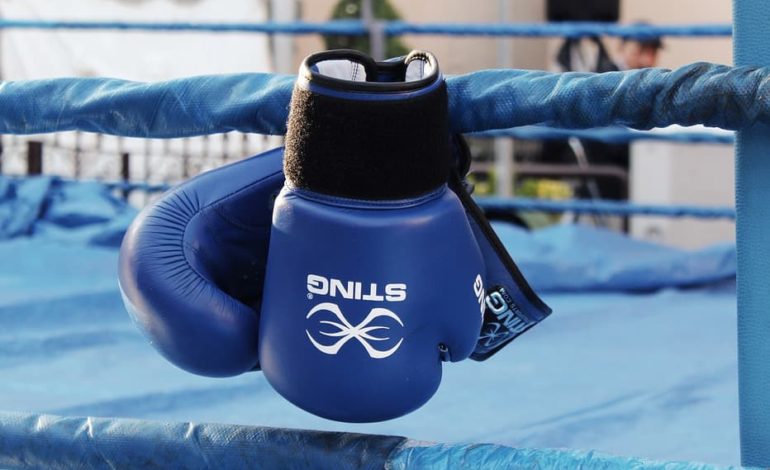The Houston Rockets appeared to be sellers. All apparent focus from the franchise appeared to be on the future, and the only rationale for some of the rotations felt like it was to dangle players as trade pieces. As a franchise that drafted four teenagers, Houston hopefuls looked forward to more picks to use in building around their young nucleus.
For better or worse, Houston Rockets’ fans were hopeful that the franchise was going to swap players for picks because it was the only thing that made sense. The “olde guarde” of Rockets have been playing a lot of minutes, and it looked like the franchise was dangling them out as bait. “Look at how great this guy is! Imagine if he was on your team!” as the Rockets sat the youth they’ve invested in. If the Rockets are truly investing in the youth, why does a rotational 33-year-old play more than a developing 20-year-old? It HAD to be in an effort to move the player, right?
(Disclaimer: This admittedly is a much delayed Round-Up. The inaction at the trade deadline was a little shocking and threw a lot of wrenches in premade plans. After shredding some things, analysis of what did happen took time as well. Thanks for the patience.)
What DID Happen?
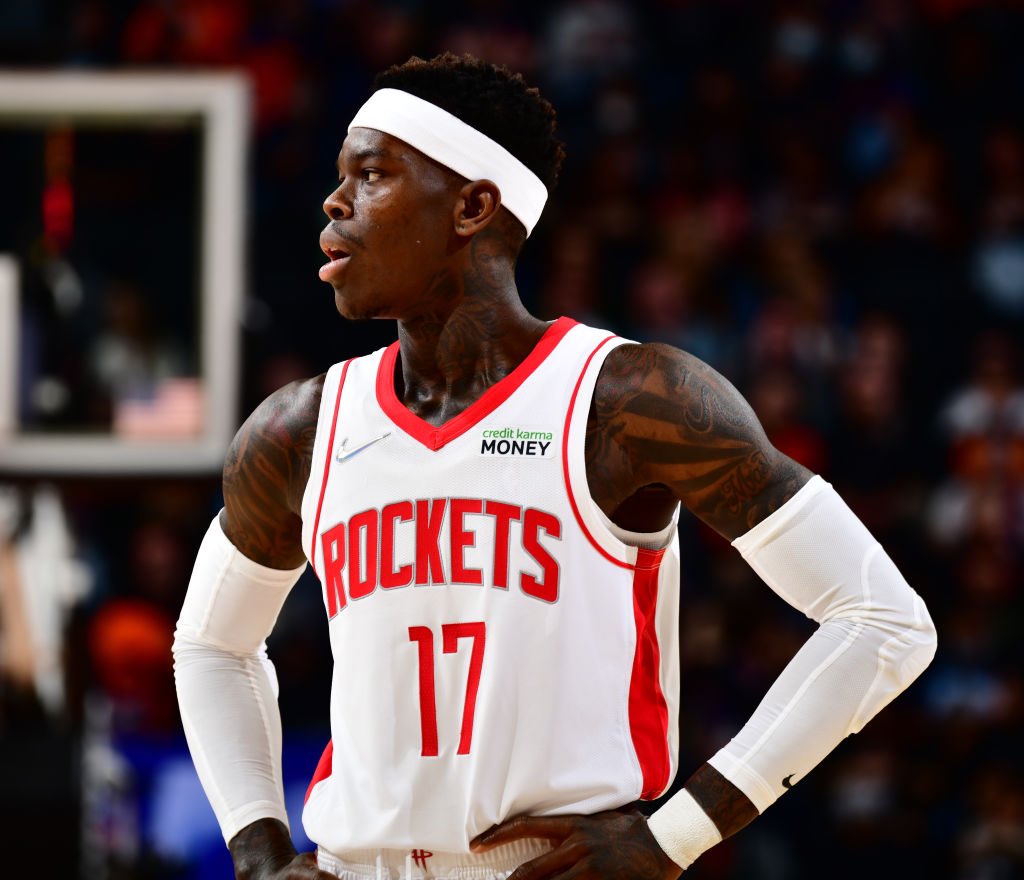
Houston was only involved in one deal of consequence at the trade deadline. Houston sent Daniel Theis, a consummate professional with a long list of “DNP’s,” to Boston for Dennis Schröder, Bruno Fernando, and Enes Freedom (who was waived). To clear space, Houston also had to waive D.J. Augustin and Armoni Brooks.
In Schröder, Houston pulled in a veteran point guard that can help a team win right now. As he’s making just under $6M this season, the wide assumptions were that Houston would waive him, and use the roster spot to make a call up from the G League. Daishen Nix has been a standout guard there, and plenty of teams would scoop Schroder for a playoff run at the league minimum. However, as of the time of writing this, Houston is holding onto and playing Schröder. In his short stint thus far, Schröder appears to be a “steady the ship” veteran much like Kelly Olynyk was a year ago.
In both cases, Houston didn’t need the veteran. Houston’s best player last season was stretch big Christian Wood, why need Olynyk? Houston’s biggest investments this season have been in their backcourt, why at Schröder? As we saw with Olynyk, a vet can come in and lead the way. Wood’s load lessened with Olynyk. He was able to focus on getting better at his game instead of worrying about leading the team. While Wood focused much more on his isolation possessions instead of his abilities as a roller, Wood did develop a lot playing alongside Olynyk.
Now, the Houston Rockets want to see similar growth with Kevin Porter Jr. and Jalen Green alongside Schröder. Can Schröder’s facilitating help Porter Jr. learn when to pick his spots as a passer vs. a scorer? Does having Schröder on the floor with Green reward him for moving without the ball and positively reinforce his movements? Is Schröder a film room guy that helps them diagnose and create their own individual scouting reports for when they get certain defenders in isolation?
Playing with Schröder will only benefit Jalen Green as a true two-guard. Schröder passes the ball well and keeps an offense in constant motion. As seen in his first start as a Rocket, the ball never gets stuck with Schröder on the floor. Green is flying off of hammers and curling into the paint almost nonstop while Schröder is running the offense. This allows him to get to his spots and rewards him for it. So when he pops open above the break? Schröder can whip the ball to him. When he flares across the top of the key to the opposite wing? Schröder makes the extra pass to get Green, the scorer, the ball. As opposed to playing Porter Jr. and Christopher, two point guards who enjoy scoring, Schröder helps open the floor for Green.
Why is That a Problem?
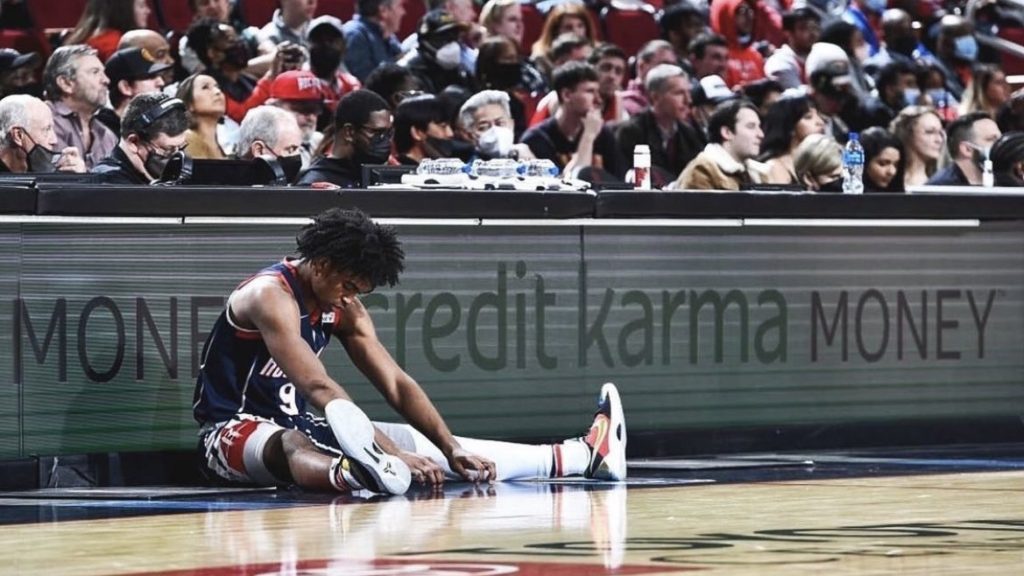
Dennis Schröder in and of himself on the Houston Rockets’ roster is not an issue. But, after looking up and down the sideline at who all plays in Houston, it does raise some questions. Schröder is a starting or Sixth-Man caliber point guard on a team trying to develop three or four (depending on where Nix is playing) young, pro-caliber guards. Unless he is willing to play very few minutes, which has not been the case in his first games as a Rocket, he’s taking game minutes away from other guys.
Minutes are finite and valuable. Schröder will continue to play with Porter Jr. and Green, but in place of Joshua Christopher. Christopher has had flashes where his fearlessness has sparked the younger Rockets throughout the season. Frankly, he felt like a steal of the NBA draft. Now? Fans worry if he’ll play much at all. Further, even though Nix is dominating the G League, it appears there isn’t even a spot for him on the roster this season.
The Houston Rockets’ backcourt is crowded enough that they don’t suit up John Wall, even though they pay him well over $40M to be on the team. Why does it make sense to pull more cooks into the same sized kitchen? Yes, Schröder passes the ball well and keeps the offense moving while he’s in… but if those are skills the franchise wants the young guards to learn, how well will they learn it from the sideline? There’s no developmental replacement for game reps.
Further, if the goal was to build chemistry in a young backcourt, adding in a three-month rental of Schröder may not be the best thing. We saw how much trouble Wood had adjusting to playing with another big in Theis this season because he wasn’t the same kind of big as Olynyk. Houston had to opt to go small and space the floor, like they did with Olynyk, instead of using the size. Will they run into similar issues with leaning on their guards next year?
Bigger Issues
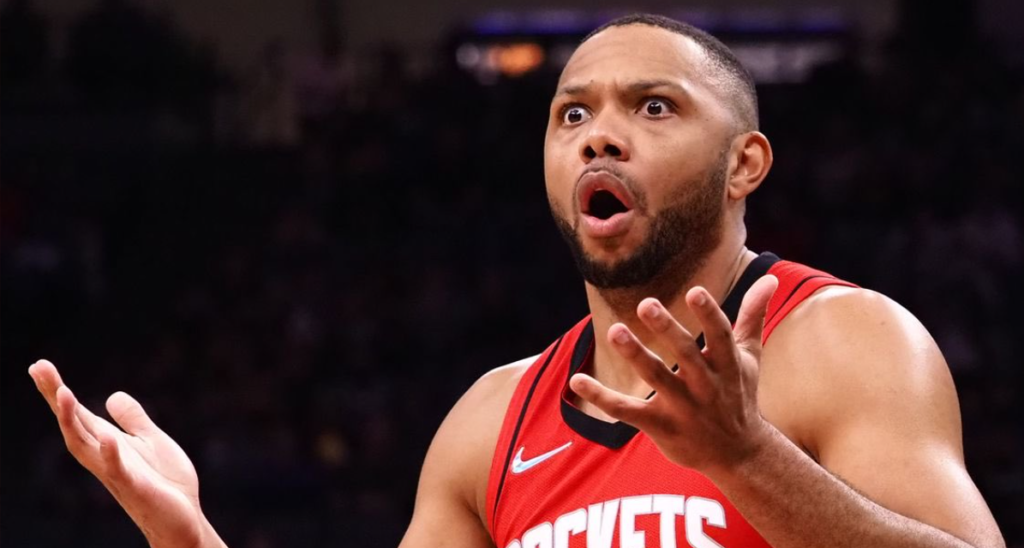
Adding Schröder is not the biggest issue with what the Houston Rockets did this NBA Trade Deadline. The bigger issue for Houston is what they didn’t do. Houston’s crowded backcourt rotation is in large part because they still have Eric Gordon. Gordy is the lone Rocket from the near-champion 2018 Rockets. The former Sixth Man of the Year is a scorer. When he’s on the floor with Schröder, he’s a catch-and-shoot threat. When he’s on the floor with Green? He drives to score or kick.
The issue isn’t that he is an ill-fit puzzle piece, but that he’s taking up minutes. The Rockets already have one well-paid empty bench seat; it doesn’t look like the league will be too happy about them doing it again.If the Rockets continue to play Eric Gordon at one of the three potential guard spots, that is time someone else can’t play.
It appears that the Houston Rockets and Rafael Stone stood firm on only trading Gordon in exchange for a number one pick. Similarly, the Houston Rockets held firm on the same price for John Wall. The less obvious price tag? That was Christian Wood. Wood was Houston’s best player a year ago, and he came to Houston to be on a contender. Houston has stripped their team down around him, and Wood has become a perimeter-based isolating big man.
Wood’s a talented player and, as a roller, adds versatility to a potent offense. But the Rockets are looking to build their team around younger pieces, and Wood wants to isolate every touch he gets in the half-court. As seen in the Schröder and Alperen Şengün starting lineup, the Rockets play better when the ball moves more.
Wood’s days in Houston appear numbered. The young Rocket guards play better with a single big man on the floor. The 19-year-old Şengün continues to earn a bigger role in the franchise. Something has to give, and the future Houston Rockets would benefit from that being Wood. But at the 2022 NBA Trade Deadline, it was not.
Wood is the most valuable asset the Houston Rockets will realistically move in the near future, and will likely be shopped again this off-season and through the 2023 NBA Trade Deadline. But does this deadline inaction indicate the price is too high? There were rumors of deals with Miami and Charlotte, but nothing came to fruition.
Wood will be a great third option on a really strong team. His flaws are highlighted in Houston, where the offense depends on him as a ball-handler. But when he becomes a three-level roller? One who can vertically stretch the defense at the rim? He’s brilliant. He deserves to be on a winning team, and winning teams will need him to put them over the top. But after the trade deadline? It looks like none of that is happening until this summer at the earliest.
What Comes Next?
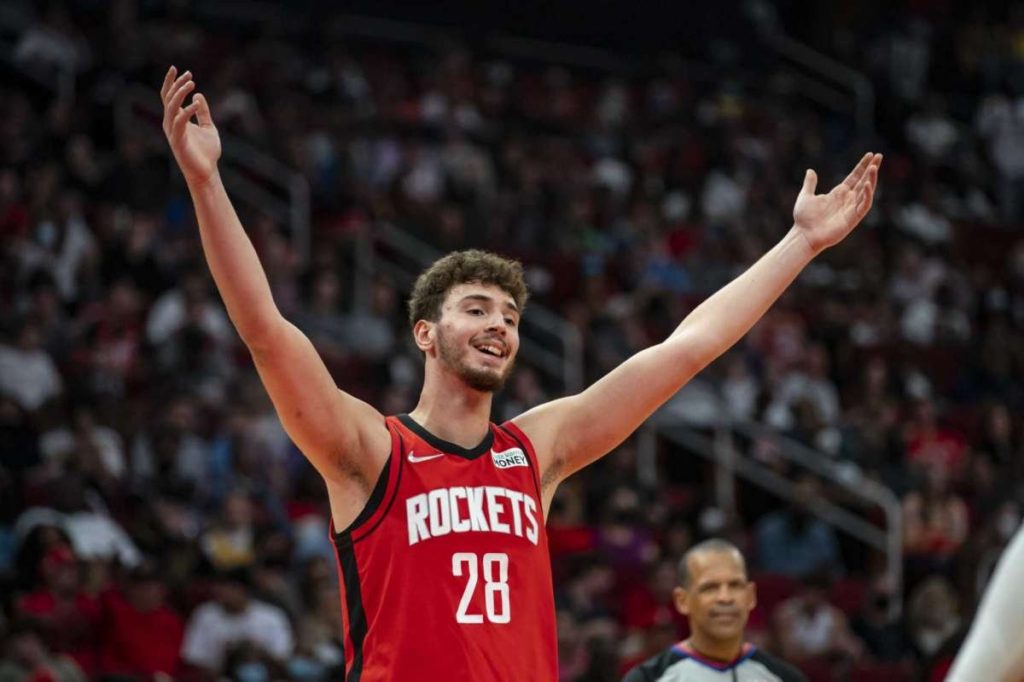
The strongest argument for success in the metaphorical second-half of the NBA season is that Houston finds a way to continue to develop their young talent. Jalen Green, Alperen Şengün, Josh Christopher, and Kevin Porter Jr. each need to continue to get better. Green and Şengün are the corner pieces the franchise hopes to pivot on. Management needs to continue to sort through their slew of point guards, like Christopher, Porter Jr., Nix, and Schröder.
The issue comes in the backcourt, where you don’t want to disgruntle the likes of Gordon, Schröder, Porter Jr., Nix, Christopher, or Green… much like they already have John Wall. Minutes are finite, and that’s a lot of people fighting for them. If Eric Gordon were to “tweak a hammy” at practice and need to miss two months, or Dennis Schröder were to need to spend time with his family in Germany, or whatever needs to happen to alleviate some of that time it would greatly benefit the team.
The Rockets can also only play so many three creator lineups. They need to figure out what they have in Kenyon Martin Jr. and Jae’Sean Tate, who play the three and four spot. The Rockets need to continue to experiment with Wood and Şengün on the floor together to see if there’s any way to salvage a two big lineup there. Garrison Mathews needs time on the floor to prove he can continue to help space it. On the whole, there are still a lot of questions to answer for the Rockets and it’s hard to see a path to answer all of the questions at once.
If the Houston Rockets can answer key questions, the rebuild can continue on track. What qualifying offer will Kevin Porter Jr. be worth in the summer of 2023? Will he fit with Jalen Green and Alperen Şengün, or do those Rockets need a different point guard archetype? Is KJ Martin worth the team option in the summer of 2023? Or will his development flatten out? If it doesn’t, do you need to hold onto Jae’Sean Tate with the team option in the summer of ‘23?
And with any of those guys who could depart in 2023 or 2024, if the Houston Rockets don’t see them being around farther than that, shouldn’t they move on? Should they look to swap them around this summer and next season? It’s not that Houston can move them now, the deadline has passed. But all playing decisions in the final 34 games need to help the franchise answer those questions, soon.
For more on sports, sneakers, and fandom, follow me @painsworth512 for more. Give our podcast “F” In Sports a listen wherever you listen to podcasts! Be sure to check our NEW weekly basketball show, The Midweek Midrange, on YouTube,Twitter, and Instagram!


